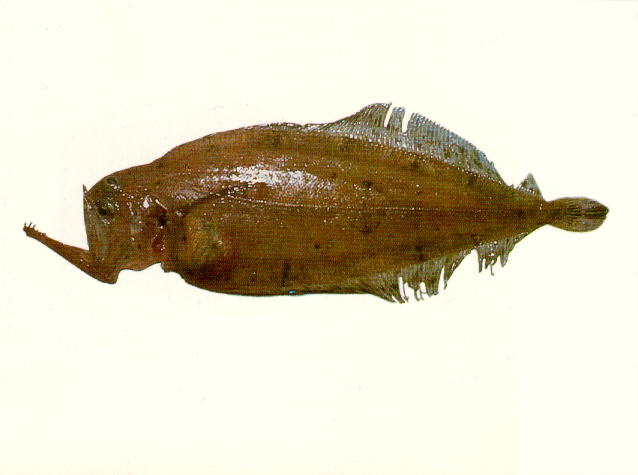| Bothidae (Lefteye flounders) |
| 22.5 cm TL (male/unsexed) |
|
bathydemersal; marine |
| Western Pacific: southern Japan and Taiwan to the Indo-Australian Archipelago (including western Australia). |
|
Dorsal spines (total): 0-0; Dorsal soft rays (total): 109-112; Anal spines: 0-0; Anal soft rays: 84-86. Mouth extremely large, maxillary strongly protruding beyond the tip of the snout anteriorly, and extending far beyond lower eye posteriorly. Upper jaw with 3 to 4 pairs of larger teeth anteriorly, and lower jaw with 3 pairs of curved strong canines anteriorly. Pectoral fin dark. |
| Inhabits sand and mud bottoms at depths of about 800 m (Ref. 9824). Rarely caught with bottom trawls (Ref. 9824). |
|
Least Concern (LC); Date assessed: 12 November 2019 Ref. (130435)
|
| harmless |
Source and more info: www.fishbase.org. For personal, classroom, and other internal use only. Not for publication.

